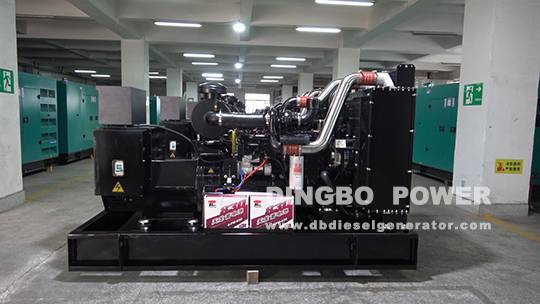When buying a generator for your home or business, you need to take many factors into consideration. Fuel efficiency is one of the key considerations when choosing a generator set. A more fuel-efficient generator can save you more money over time. Diesel generators and petrol generators are two of the most common types, which one is best for you? Read on and you can make an informed decision.
What are diesel generators and petrol generators?
Diesel generator
A diesel generator, also known as a diesel genset, is the combination of an internal combustion diesel engine with an electric generator (alternator) to generate electrical energy. Diesel generators converts mechanical energy into electrical energy by going through a series of stages. They are usually designed to run on diesel fuel. Diesel gensets are employed across a wide range of applications.

Petrol generator
A petrol generator, also called gasoline generator, is a portable electric generator that burns gasoline to run. It uses a spark ignition and gasoline-fueled engine to power an electric generator to produce electricity. Petrol generators are typically lightweight, portable, and easy to start. They are suitable for powering small appliances, tools, and electronics.
Are diesel generators more efficient than petrol?
Yes. Without doubt diesel generators are more fuel-efficient than petrol generators. They often burn up to half as much fuel over any given time than their petrol counterparts. Diesel fuel is more energy-dense and has a lower ignition temperature than petrol, meaning less fuel is required to generate the same amount of power. In addition, diesel engine has a higher compression ratio. Petrol doesn't undergo complete combustion and hence there is a small wastage of fuel. That’s why a diesel engine is more efficient than a petrol engine.
How much fuel does a diesel generator use per hour?
As a general rule, diesel generators use 0.4 litres of fuel for every kWh produced, which equates to an efficiency ratio of 25%. It is worth noting that the number can vary due to different factors such as temperature or quality of fuel. Typically, the diesel generator fuel consumption is affected by factors including the size of the generator, the load conditions, generator brand and the appliances you need to power in the event of a power outage.
Read more about how to reduce fuel consumption of diesel generator sets.
Should I get a petrol or diesel generator?
When choosing between diesel generators and petrol generators, it’s essential to consider what you intend to use them for. Though diesel generators are considered more fuel efficient, it doesn’t mean that this type of generator is the best option for every application. For example, if you need a home generator set for infrequent or temporary use, petrol generators will be a better option because they are generally less expensive and run quieter compared to diesel generators. Petrol generators are more suitable for temporary, intermittent or low-load applications, such as camping or caravanning. They are typically used for short-term applications.
Diesel generators provide a greater power output and have a longer life span, which are specially ideal for continuous and heavy-duty use. Companies working in construction sites or those in demanding agricultural and mining industries will almost always choose diesel generator sets because they can produce greater levels of power at lower cost. Diesel is less flammable and has a longer shelf life than gasoline. Unlike petrol generators that use spark plugs and carburetors, which can malfunction, diesel generators have fewer moving parts and require less maintenance. By using diesel generators, you can enjoy unmatched reliability. The downside of using diesel generators is that it needs a higher upfront investment. However, high fuel efficiency makes diesel the most cost-effective solution over the lifetime of the genset.
Contact Dingbo Power to get the right advice
Dingbo Power is a professional manufacturer of diesel generators and offer a wide range of diesel and petrol generators. Including some of the biggest brands in the industry, such as Cummins, Perkins, Volvo, MTU, Yuchai, etc. - we exclusively offer the highest quality and most reliable generators, which can meet your specific power requirements.
If you are still unsure which model is best for you, don't hesitate to contact us. With almost 20 years of experience, Dingbo Power can give you advice on which type is the right choice for you. For more information, please contact our team today.
Comments
Post a Comment